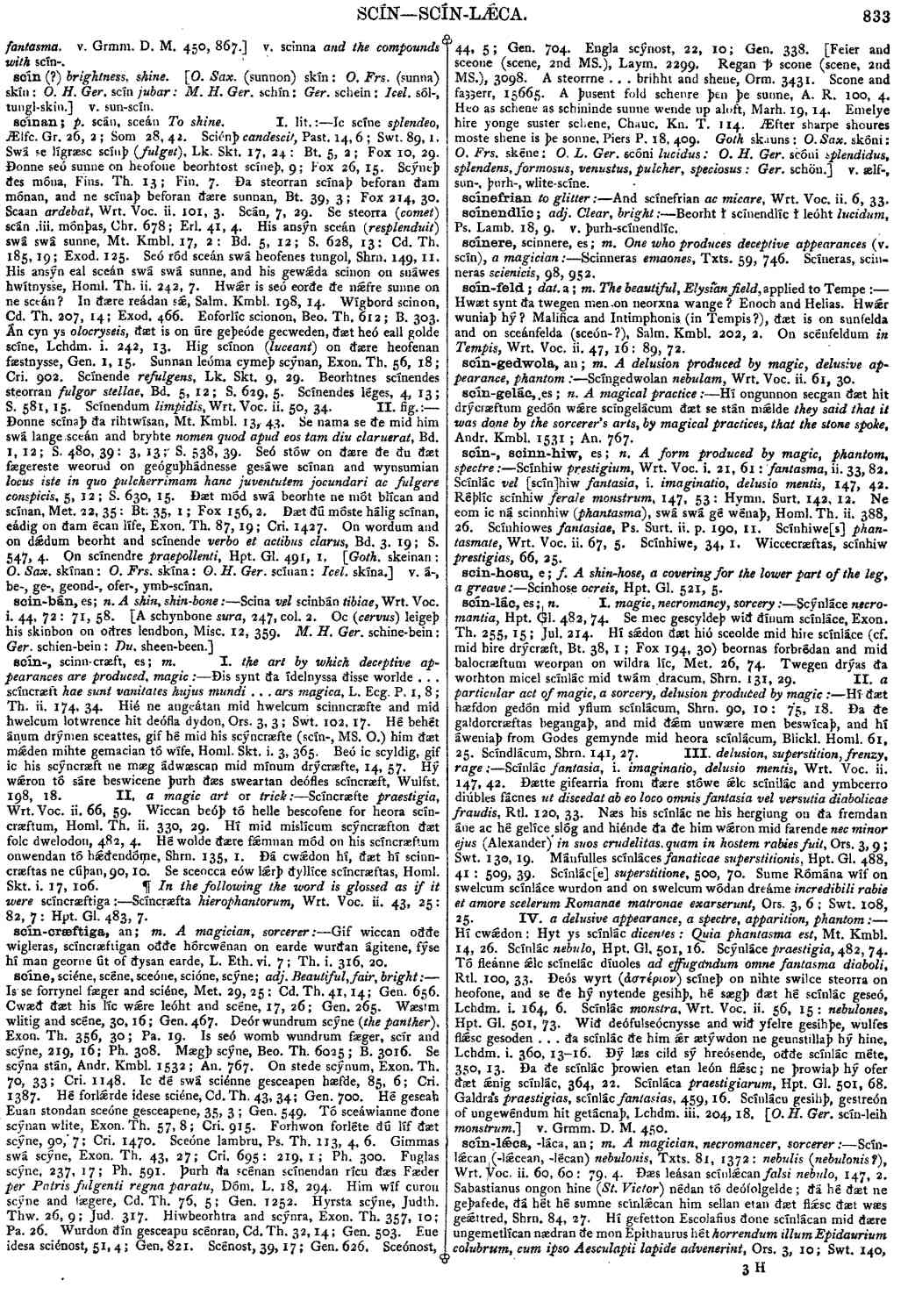sín-lǽca
- noun [ masculine ]
-
Scín*-*lǽcan (-lǽcean, -lécan)
nebulonis, Txts. 81, 1372: nebulis (nebulonis? ),
- Wrt. Voc. ii. 60, 60: 79. 4.
-
Ðæs leásan scínlǽcan
falsi nebulo
,- 147, 2.
-
Sabastianus ongon hine (
St. Victor
) nédan tó deófolgelde; ðá hé ðæt ne geþafede, ðá hét hé sumne scínlǽcan him sellan etan ðæt flǽsc ðæt wæs geǽttred,- Shrn. 84, 27.
-
Hí gefetton Escolafius ðone scínlácan mid ðære ungemetlícan nædran ðe mon Epithaurus hét
horrendum illum Epidaurium colubrum, cum ipso Aesculapii lapide advenerint
,- Ors. 3, 10; Swt. 140,9: 3, 10, tit.; Swt. 3, 19.
-
Scínlǽcan
magi,
- Wrt. Voc. ii. 39, 11.
-
On helle beóþ ða scínlǽcan, ða ðe galdorcræftas begangaþ,
- Blickl. Homl. 61, 23.
-
Ða fǽmnan ðe gewuniaþ onfón gealdorcræftigan and scínlǽcan (-lácan,
- MS. H.)
Bosworth, Joseph. “sín-lǽca.” In An Anglo-Saxon Dictionary Online, edited by Thomas Northcote Toller, Christ Sean, and Ondřej Tichy. Prague: Faculty of Arts, Charles University, 2014. https://bosworthtoller.com/26827.
Checked: 0